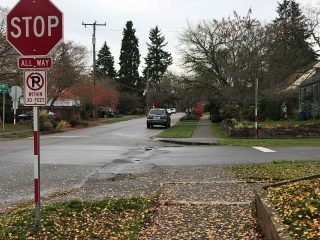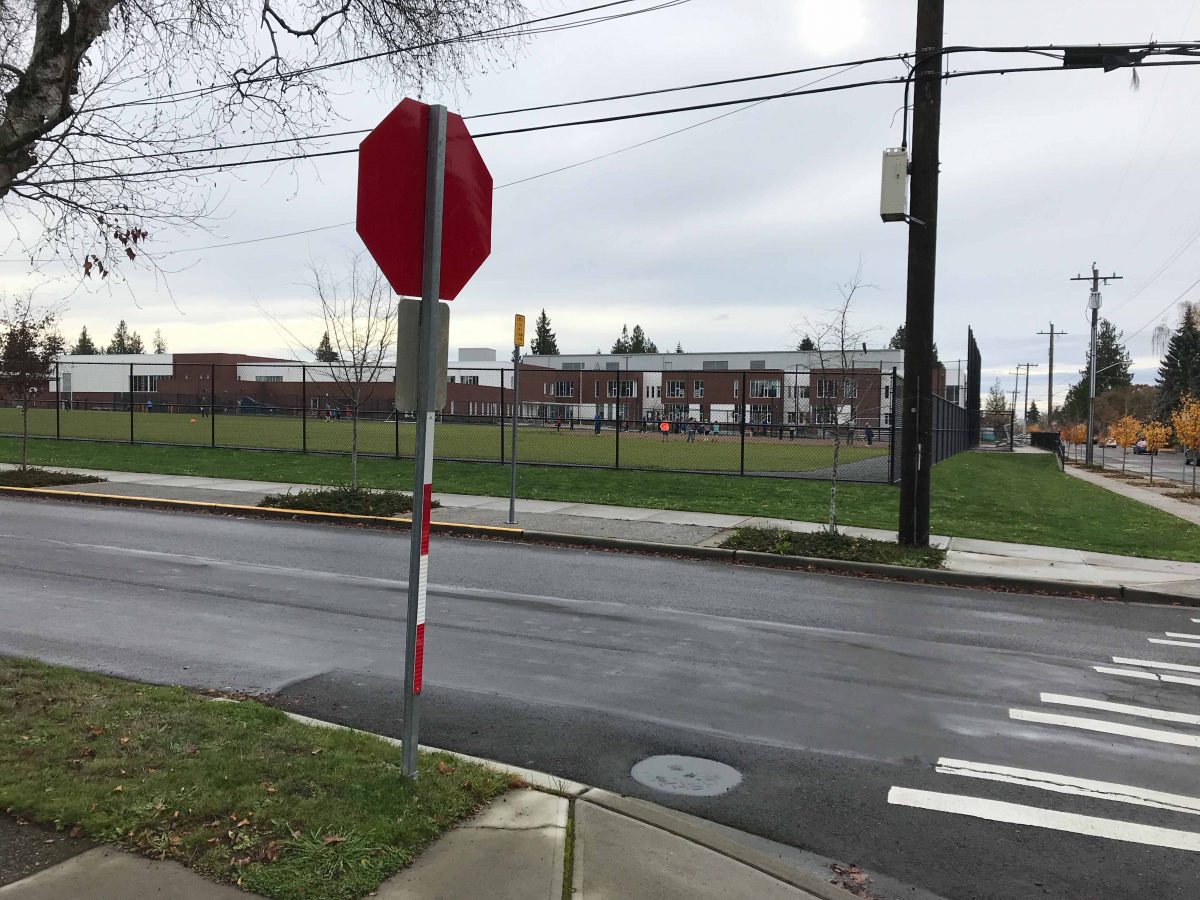
(Photos: Mike Dowd)
This post was written by reader Mike Dowd.
When I grew up in Seattle, stop signs had wood posts with red-and-white, candy cane-like stripes. Now they have metal poles, but they’re still striped. When I moved to Portland, I really missed them! It seemed dangerous without them.
When you approach an intersection in Seattle, the stripes immediately show you whether people entering the intersection from other directions must stop. In Portland, you have to look for the octagonal sign shape — not easy to see when you’re looking at the back of a sign across the intersection (maybe with a telephone or light pole in front of it), and almost impossible when looking at the narrow edge of a sign regulating cross traffic.
It’s critical for everyone — whether driving, riding, or walking — to know who must stop at an intersection. You don’t want to enter an intersection until you’re sure nobody is entering it from your left or right. You don’t want to make a left turn until you know whether an oncoming vehicle or bike is going to stop.
If you misread the intersection, and proceed thinking that crossing traffic has stop signs when it does not, you may cause a crash. If you don’t see others’ stop signs, and slow or stop thinking they don’t need to stop, you create confusion and delays. (Portland has become infamous for the “You go,” “No you go,” “No you go,” dance.)
Advertisement

Portland has a mish-mash of info added below stop signs: “All Way” signs at intersections with four stop signs, “Oncoming Traffic Does Not Stop”, “Traffic From Right Does Not Stop”, etc. But it’s not consistent, which itself creates danger. Those also only give information to people who do have a stop sign. If you don’t have a stop sign, there’s no sign telling you whether cross-traffic or oncoming traffic has stop signs.
The stripes also make stop signs much more visible for people approaching them, since the overall “sign” becomes effectively about eight feet tall instead of just a two-foot octagon.
Also, the stripes Seattle adds to metal stop sign posts are reflective, so all the various advantages of the stripes are magnified at night. In Portland, the backs and edges of stop signs are almost invisible at night.
I’d like to see the stripes added in Portland. I’m curious what others have seen in other places.
— Mike Dowd
Never miss a story. Sign-up for the daily BP Headlines email.
BikePortland needs your support.


